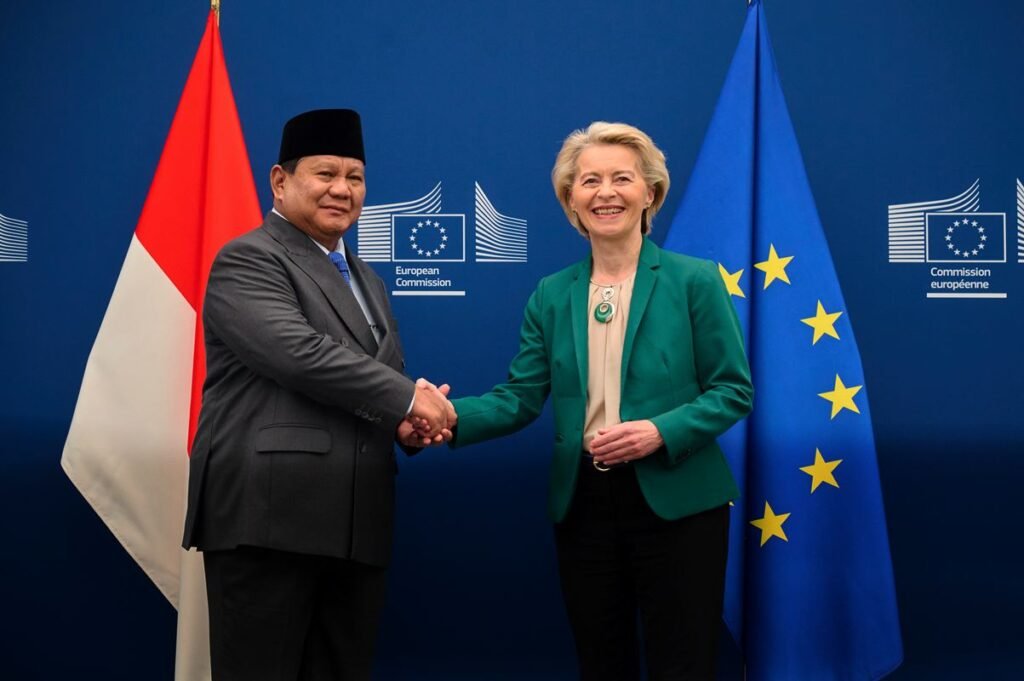Following a political agreement reached on 13 July, the EU and Indonesia have finalised negotiations for a Comprehensive Economic Partnership Agreement (CEPA) and an Investment Protection Agreement (IPA).

“Our deal with Indonesia creates new opportunities for businesses and farmers in a major and growing economy,” Commission president Ursula von der Leyen said in July: “This also provides us with a stable and predictable supply of critical raw materials, essential for Europe’s clean tech and steel industry.”
The CEPA will significantly benefit European farmers, says the Commission, bringing down tariffs on agri-food products and protecting traditional EU products, as well as key industrial sectors, such as the automotive, chemicals, and machinery sectors. In all, EU exporters are set to save some €600 million a year in duties paid on their goods entering the Indonesian market, and European products will be more affordable and available to Indonesian consumers.
The CEPA is also a major milestone for the EU and Indonesia to foster sustainable growth and the green transition, says the EU executive, and creates a free trade zone of over 700 million consumers based on transparency and predictability.
The agreement will give EU companies privileged access to the Indonesian market by:
- Removing import duties on 98.5% of tariff lines and simplifying procedures on EU goods exports to Indonesia, including key exports such as cars and agri-food products.
- Allowing EU companies to provide services with full ownership in key sectors such as computers and telecommunications.
- Opening up new opportunities for EU investments into Indonesia, notably in strategic sectors such as electric vehicles, electronics, and pharmaceuticals, thereby fostering the integration of both side’s supply and value chains.
- Protecting intellectual property such as trademarks, which allows EU companies to safeguard their brand identity and reputation, ensures remedies against infringers and provides effective tools to combat counterfeit products, helping small businesses with dedicated provisions and benefitting Indonesian consumers.
The deal will protect 221 EU, and 72 Indonesian, agricultural and food geographical indications (‘GIs’). And it protects sensitive agri-food products such as rice, sugar and fresh bananas where existing tariffs are maintained and limits the access to the EU market for other sensitive products through carefully calibrated quotas.
Except for imports of Indonesian crops that are not grown in the EU, the EU already exports more agri-food products to Indonesia than it imports, with exports of €1 billion per year.
The EU-Indonesia CEPA has a strong sustainability pillar, fully integrating the objectives of the EU Trade and Sustainable Development (TSD) review, with respect to commitments on climate, the environment, workers’ rights and their enforceability.
Critical raw materials are a key feature of the deal. Indonesia is a world-leading producer of raw materials, many of which are vital to the green and digital sectors. The agreement strengthens predictable, reliable and sustainable supply chains, including through reduced tariffs, facilitation of exports, environmental impact assessments, and advanced cooperation.